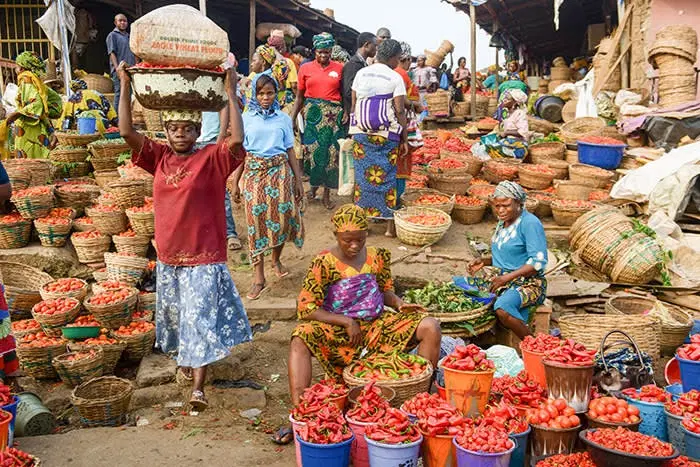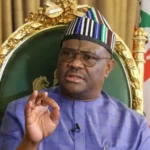Against the backdrop of this week’s thunderstorm across the economic space over further spike in petrol crises, economy and financial experts have painted a grim picture of the short and medium-term outcomes of the Federal Government’s economic policies and reforms.
This is also coming against the backdrop of FG’s consistent promise of a turn-around soon urging the citizens to endure and wait for the turn-around. The experts, looking into the immediate future, indicated that it may take up to 2027 to begin to see recovery from the present hardship.
However, they also indicated that such recovery and the time frame may still fail if the government does not take certain measures to stem the tide of hardship currently pervading society.
The petroleum sector authorities had earlier in the week effected a fresh hike in the pump price of fuel amidst a seven-week-long scarcity which appears unending as of the time of filing this report.
With the current pump price at between N900 and N1,200 per litre, many analysts are predicting a further round of economic downturn leading to further hardship for the citizens.
The key economic pain points include inflationary pressures, rising unemployment, declining purchasing power, rising utility bills and cost of living all of which have combined to create a steady decline in standard of living.
Looking into what the future holds for Nigerians, the analysts noted that the economic recovery would largely depend on key factors such as oil sector recovery, foreign exchange and interest rate stability, and agricultural productivity.
However, they also said that on all the factors odds are stacked much higher than positive expectations.
As if in confirmation of this grim reality, Nigeria’s key economic power base, the crude oil export, suffered a significant setback during the week when the price of its crude oil grade, Bonny Light, tumbled to $73 per barrel, the biggest drop so far this year.
Nigeria’s budget implementation is threatened at the current price as the budget revenue was based on $77 per barrel. The crude oil price slump is an added headache to the persistent difficulty in reaching the budgeted oil production benchmark level of 1.7 million barrels per day (mbpd).
The country has been struggling to produce an average of 1.4 mbpd since this year. The combined impact of these circumstances in the oil sector is an abysmal performance of the fiscal plan in 2024, less than four months to end. This also means that the economic recovery target for the year is already lost.
The significance of the oil sector performance is that it determines the performance of the economy which is about 80 percent oil dependent. In particular, the drop in oil revenue means a blow to the external sector, especially the foreign reserves which had just lost over $500 million in the last week of August 2024, slipping back to $36.3 billion.
This also puts significant pressure on the exchange rate with the Naira falling to N1,630 to a Dollar this week, against an average of N1,570 recorded in August 2024. Connected to this development is the impact on inflation where the external sector is now piling much pressure on the imported inflation component of the composite consumer price index.
With these developments, analysts believe short to medium-term recovery is difficult, while some of them said it is difficult to predict the exact time frame for the economic recovery as this will depend on the successful implementation of reforms, global economic trends, and domestic stability.
However, for most of them typically, significant improvements may begin to manifest within two to three years if the government effectively addresses key issues such as infrastructure development, inflation control, currency stabilization, and boosting local production. But the turnaround, according to them, will likely be gradual and not provide immediate relief.
Economy will take quite some time to fix —Prof Uwaleke
Prof. Uche Uwaleke, President, Association of Capital Market Academics of Nigeria, ACMAN, expressed the view that no turnaround should be expected in the next two years.
He stated: “I am afraid it will take quite some time to fix. Certainly not in the next year or two years. The inherited legacy challenges are humongous, especially in the power and petroleum sectors which are compounded by insecurity. Until these structural constraints are dealt with, inflation and exchange rates will remain elevated over the short and medium term.”
Pains may extend beyond normal timeline —Highcap Securities boss
Providing his own insight into the current economic hardship, David Adonri, Analyst /Executive Vice Chairman, of Highcap Securities Limited, a Lagos-based finance and investment house, believes the government’s approach to economic reform is wrong-headed.
He stated: “There are short-term pains associated with demand management reforms. However, FGN is approaching the situation wrongly such that the pains may extend beyond normal expectations. FGN is not extending the reforms to public spending which ought to be in austerity mode so that inflation can reduce. Additionally, there is no seriousness on the part of FGN to eliminate excruciating rural insecurity in order to close the supply gap in agriculture and other rural-based production activities. Now, rural communities in parts of the country are embarking on self-defence to prevent their extermination since FGN has left them to their fate. So far, FGN has failed to mobilize the country’s idle factors of production to domestically create wealth and generate productive employment. As a result of these lapses, it may be difficult to predict economic revival even in the next 5 years.”
FG should rejig economic team — ASBON boss
Commenting on the hardship and the outlook for a turnaround, President of the Association of Small Business Owners of Nigeria (ASBON), Dr. Femi Egbesola, noted that the degree of poverty and hardship is deepening by the day, and called on the federal government to re-jig its economic team.
His words: “People’s disposable income is being eroded, many are hungry and angry, local businesses are closing down, international businesses are relocating out of Nigeria, so many avalanches of challenges. This is a direct indicator that something is wrong with our fiscal policies, macro economy and largely our policymakers.”
Conflicting events have undermined reforms – CEO, Emerging Africa Capital
Speaking to Vanguard on the outlook for the Nigerian economy, Mrs Toyin Sanni, Group CEO, Emerging Africa Capital Group, said though the current hardship being experienced by Nigerians was induced by ‘bold reform initiatives’ of the present administration, she stated that promised turnaround is, however, filled with several conflicting events that have continued to mar progress of the initiatives.
She stated that the expectation for a turnaround is contingent upon various factors aligning and projected a 2025/2026 timeframe for any visible impact and changes in the economy.
She said: “In recent times, the economic landscape of Nigeria has been shaped by bold reforms initiated by the new administration. These reforms, though necessary, have resulted in significant economic hardships for the average Nigerian. The government’s stance remains one of perseverance, urging citizens to endure the current challenges with the promise of a brighter future.
“However, the path to this promised turnaround is fraught with complexities as several conflicting events and structural challenges have continued to undermine the progress of these initiatives.
“For example, while the Central Bank of Nigeria (CBN) has taken an aggressive stance against inflation, raising interest rates from 18.5% in June 2023 to 26.8% in June 2024, inflation has continued to rise, touching 33.4% as of July 2024, a 28-year high. This is due to persistent challenges such as insecurity in food-producing regions, high logistics costs, inadequate transport infrastructure, and the ongoing depreciation of the naira. These factors have limited the effectiveness of the monetary tightening measures.”
Continuing, she stated: “The expectation for a turnaround is contingent upon several factors aligning effectively. Studies have shown that the impact of monetary policy changes, such as interest rate hikes, takes time to filter through the economy—often between 12 to 24 months. However, in Nigeria’s context, this period could be extended due to the underlying structural issues that amplify economic vulnerabilities. Therefore, a tangible turnaround in economic conditions might not be evident until late 2025 or early 2026, provided that complementary fiscal policies are also implemented effectively.”
Immediate realities remain difficult —Egbomeade
Responding to the economic hardship in the country, Clifford Egbomeade, Public Analyst & Communications expert said: “The economic hardship in Nigeria has been exacerbated by certain government policies, and while the government urges citizens to be patient and anticipates a future turnaround, the immediate reality remains difficult. It is difficult to predict the exact time frame for economic recovery, as it depends on the successful implementation of reforms, global economic trends, and domestic stability. Typically, significant improvements may begin to manifest within 2 to 3 years if the government effectively addresses key issues such as infrastructure development, inflation control, currency stabilization, and boosting local production. However, these changes will likely be gradual and not provide immediate relief’’.
Recommendations for a turnaround
For Nigeria to witness a lasting turnaround in its economic fortunes and improvements in the lives of the average citizen, Mrs Toyin Sanni, Group CEO, Emerging Africa Capital Group, highlighted the need for the government to strengthen security in agricultural regions, invest in infrastructure development, enhance policy coordination between government agencies, encourage private sector investment, support the development of technology and economic inclusion of women and youths.
She also emphasised the need for general societal and socioeconomic cohesion, strengthening of sociocultural ties and long-term economic diversification among others.
She stated: “The government must prioritize security in key food-producing areas. Addressing insecurity will not only boost agricultural output but also help stabilize food prices, which is crucial for controlling inflation. The government should fast-track investments in critical infrastructure, particularly in transportation and logistics. Improved infrastructure will reduce the cost of doing business, enhance competitiveness, and support economic growth.
“Effective policy coordination between the monetary and fiscal authorities is essential for a successful economic turnaround. The CBN’s efforts to control inflation must be complemented by government policies that promote growth and stability. This includes ensuring that fiscal measures do not counteract the effects of monetary policy. The government should create an enabling environment for private sector investment, particularly in critical infrastructure sectors. Public-private partnerships could play a vital role in addressing some of the infrastructural deficits and driving economic growth.
“Nigeria must accelerate efforts to diversify its economy away from oil dependency
Investing in agriculture, manufacturing, and technology sectors will create more resilient and sustainable economic growth. The government should actively support the growth of the technology sector through the establishment of industrial parks, provision of subsidies, and funding opportunities for technology founders. These initiatives will foster innovation, create jobs, and position Nigeria as a hub for technological advancements in Africa,” she said.
Mrs Sanni added that, “Women and girls make up nearly half of Nigeria’s population, and citizens under 35 years old account for at least 70% of the population. However, the full potential of these groups is often constrained by unequal access to power and resources, along with exclusionary norms, practices, laws, and policies. To harness the full potential of Nigeria’s population, the government must prioritize the empowerment of women and youth by ensuring equitable access to education, resources, and opportunities.
“Nigeria, with its rich diversity of over 250 ethnic groups, has long faced challenges related to tribal tensions and ethnic divides. This has contributed to a lack of unity as well as insecurity in some regions of the country. To achieve national unity and foster economic progress, it is crucial to strengthen societal cohesion and sociocultural ties through shared prosperity across regions. The government must prioritize policies that promote inclusivity, reduce inequalities, and encourage dialogue across different communities to build a more harmonious and prosperous society,”
On recommendations for a possible turnaround, President of the Association of Small Business Owners of Nigeria (ASBON), Dr. Femi Egbesola, said: “My immediate recommendation will be for the government to rejig the economic team if really we expect different results. There is also a need for the government to prioritize the immediate and remote welfare of the citizens, particularly in the areas of their immediate needs. The government should be intentional about fighting corruption headlong as it is the root cause of the other many challenges we now contend with and is the monster fighting against some of the laudable policies of the government.
“Fighting corruption will also make the government more transparent. When the government is transparent and its citizens are able to see and understand the workings of government, they will also be able to contribute to the government’s development agenda and will naturally be more cooperative. The government must focus heavily on improving the ease of doing business and developing the key economic sectors, one mainly is the MSME sector which creates 96! of businesses and employs 84% of the workforce. This sector which also includes agriculture, must be supported to grow and scale up to the point of not just sustaining our local production demands but should be able to actively export to earn enough forex to the country. We just must improve and support non-oil exports.”
On his recommendation to fix the economy, Prof. Uche Uwaleke, President, Association of Capital Market Academics of Nigeria, ACMAN, said: “Going forward, what has become obvious is that the energy sector requires urgent reforms beginning with the NNPCL. I also think that fiscal and monetary authorities must acknowledge that the Agric sector holds the key to lower inflation, job opportunities and inclusive economic growth and should join hands to tackle the challenges. On its part, the CBN should reform and resuscitate targeted interventions in the Agric value chain while at the same time rethinking the current monetary policy stance that over-relies on blunt traditional tools.”
In his recommendation, Clifford Egbomeade, Public Analyst & Communications expert said: ‘‘To facilitate a turnaround, the government should focus on policy reforms that prioritize economic diversification, job creation, and social safety nets to cushion the impact on vulnerable populations.”


